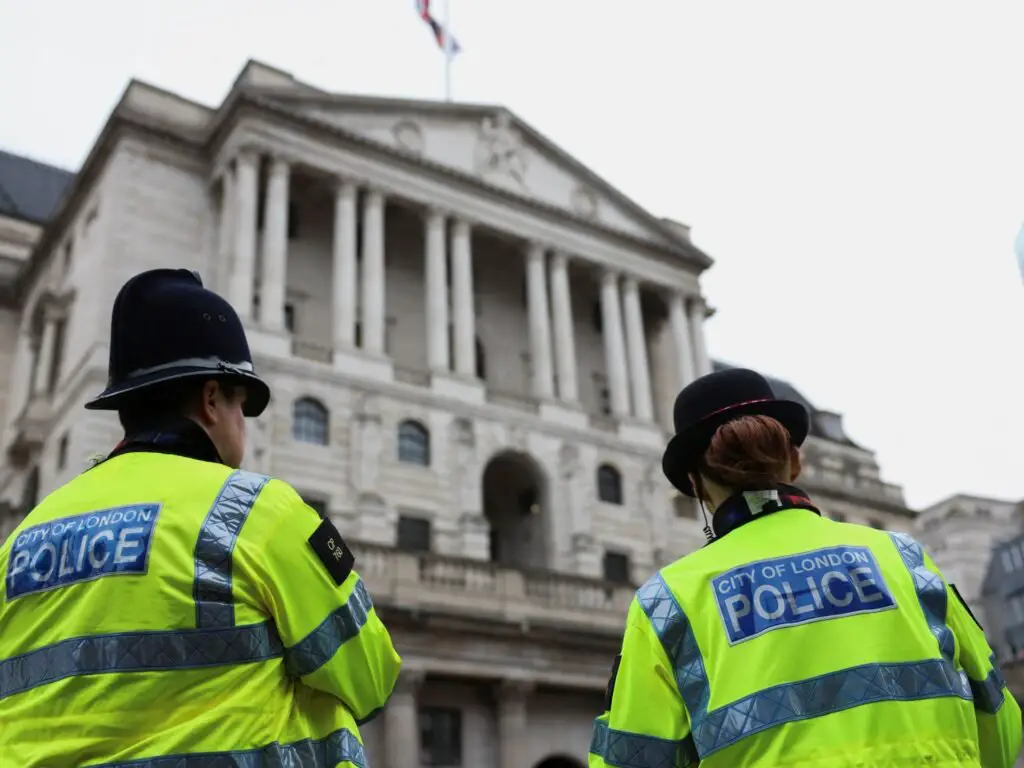Last month, a British journalist revealed that she had been visited by police at her home in Essex over a piece she had written on X about former Pakistani Prime Minister Imran Khan a year earlier.
On November 12, Allison Pearson, a columnist for the right-wing newspaper The Daily Telegraph, claimed that she was being investigated for a “non-criminal hate incident” (NCHI). Police later denied this, saying they were being investigated for a potential offense of inciting racial hatred rather than an NCHI, but the investigation was closed a few days later.
Whether police were investigating Pearson for a non-criminal hate incident or an actual crime is at issue over her experience has brought to the fore discussions about the controversial practice of recording NCHIs.
This week Nick Herbert, chairman of the College of Policing, said the government should consider abolishing NCHIs entirely, claiming recording NCHIs had become a “hindrance to policing”.
While some want the practice to be abolished, others argue that recording NCHIs is important.
But what is a “non-criminal” hate incident and what do people in the UK think about the police investigation?
What are non-criminal hate incidents?
The Police, Crime, Sentencing and Courts Act 2022, which applies to England and Wales, describes an NCHI as an act that is “clearly motivated by deliberate hostility or prejudice towards people with a particular characteristic”.
These characteristics can be race, religion, sexuality, disability or transgender identity.
The West Yorkshire Police website lists examples of NCHI which include verbal or online harassment, bullying at school or work, offensive leaflets or posters and dumping rubbish outside homes or in letterboxes.
Police in England and Wales have been legally required to record reports of NCHIs since June 2023.
Scotland implemented its own hate crime law – the Hate Crime and Public Order (Scotland) Act – in April 2024. It also mentions NCHIs: “It is an operational matter for Police Scotland to determine how reports of a hate crime or hate incident are investigated and recorded and these have no connection with the Hate Crime Act.”
Why do people say that police recording of NCHIs is problematic?
Some argue that NCHIs restrict free speech, waste police time, and target people who shouldn’t be on police radar.
Last month, The Times newspaper revealed its own investigation that found a nine-year-old who called a classmate a “retard” and two secondary school students who said another student “smelled like fish” were taken by police NCHIs were recorded as perpetrators.
Other children were also reported — and their actions were recorded by police, the Times investigation found. The Times said it found “widespread confusion” among police about what types of incidents should be recorded.
Complaints about NCHIs have increased recently. Based on data from 45 of the UK’s 48 police forces, 13,200 complaints were recorded last year. Based on this number of complaints, the British think tank Policy Exchange predicted in a report published on November 25 that more than 60,000 police hours per year are spent on NCHIs.
Nick Herbert, chairman of the College of Policing, told the media this week: “I think it has become a barrier to the police doing what we expect the police to do, which is to make sure they prevent harm and “Recognizes where there is harm.” Risking harm, ensuring it can be prevented… the category itself has become controversial and distracting.”
Why do some people say they are necessary?
Some argue that monitoring NCHIs is necessary because they could be an indicator of hateful behavior that could escalate into criminal behavior.
Danny Stone, the chief executive of the UK-based Antisemitism Policy Trust, wrote for the news blog Conservative Home that “victim-led hate reporting has had a significant and important positive impact on police and communities in diagnosing harm, extremism and failure.” or community cohesion efforts.”
Stone also cited a 2007 case when a woman in Leicestershire killed herself and her severely disabled daughter after being tormented by local youths for a decade. It emerged the woman, Fiona Pilkington, had contacted police 33 times about the misconduct. Despite eight police visits to the family, no action was taken.
Who has been investigated for non-criminal hate incidents?
In 2019, former police officer Harry Miller was investigated by Humberside Police for “transphobic comments” on his X account. He wrote 31 posts between November 2018 and January 2019 in which he expressed what was later described as “gender-critical views”, which have been legally protected since the 2021 Forstater ruling, and as “philosophical beliefs” within the meaning of equality law apply.
In one post he wrote: “Trans women are women. Does anyone know where this new biological classification was first proposed and adopted?” Another post said, “I was assigned “mammal” at birth, but my orientation is “fish.” Don’t confuse me.”
Miller sued police over the investigation, claiming his right to free speech was potentially being denied. The court agreed with Miller and said his views fell within the scope of free speech protections.
The judge ruled that there was no evidence that Miller’s posts were “intended to cause serious offense” and that his posts were “not directed at the transgender community” but rather at his X-followers.
On November 10 this year, 64-year-old Daily Telegraph journalist Allison Pearson claimed in her newspaper column that police had “turned up” at her Essex home and informed her that she was being arrested for a post she made a year ago long written on X, an NCHI had been accused. She claimed they weren’t allowed to tell her what specific X post it was or who complained about it.
Pearson denied posting “hateful” content.
The Guardian reported that Pearson’s X post was a picture of two people of color holding the flag Pakistan Tehreek-e-Insaf (PTI)the party of imprisoned former Pakistani Prime Minister Imran Khan. Pearson captioned the picture: “Look at this crowd smiling with the Jew-haters.” He may have confused the PTI flag with the Hamas flag. She later deleted the post.
Essex Police, which later told the Guardian that Pearson was in fact being investigated for the potential offense of inciting racial hatred rather than an NCHI, and released bodycam footage of its officers to prove this, closed the investigation on 21 March. November all the way.
Following the Allison Pearson incident, right-wing news presenter and activist Darren Grimes claimed he was under investigation for an NCHI in 2020.
Like Allison, I also had a hate incident registered that was not a crime. They should stop recording such Orwellian marks against a person. I cannot understand the urgency of investigating such a vexatious allegation. Britain is not a free country. https://t.co/dRjRxF1Pi9
— Darren Grimes (@darrengrimes_) November 13, 2024
Who else is campaigning against NCHIs?
Some conservatives and free speech advocates oppose the recording of NCHIs, including the British non-partisan organization Free Speech Union.
In a statement, the Free Speech Union said the surveillance of NCHIs was “a new and frightening restriction on our free speech.”
Policy Exchange published a report on November 25, written by its head of crime and justice, David Spencer. Monitoring NCHIs is “a frightening distraction from the public’s policing priorities,” wrote Spencer, a former chief inspector of the Metropolitan Police.
Spencer added that recording NCHIs is a distraction for police.
Former Foreign Minister Suella Braverman The Conservative Party has also been critical of NCHIs. In 2023, while the Conservative Party was still in power, Braverman released new guidance stating that incidents should only be considered NCHIs if they are “clearly motivated by intentional hostility.”
Last month, The Telegraph reported that Labor Home Secretary Yvette Cooper is considering reversing the change to allow monitoring of anti-Semitism and Islamophobia that could escalate into violence.





